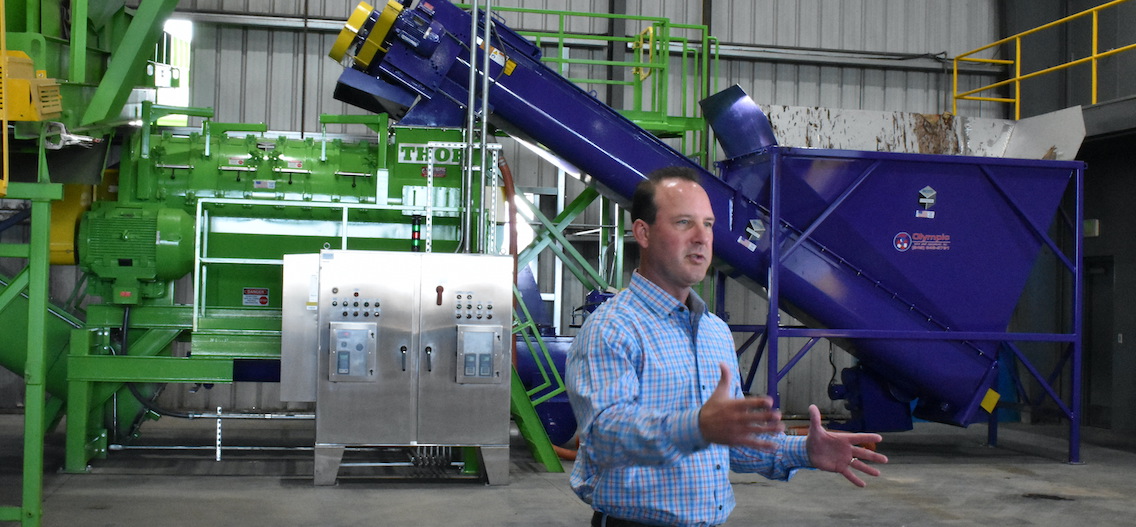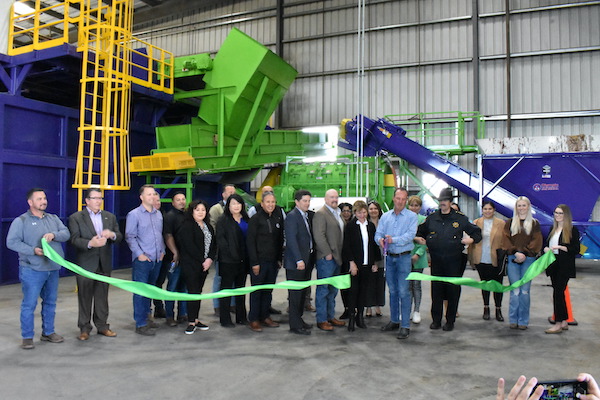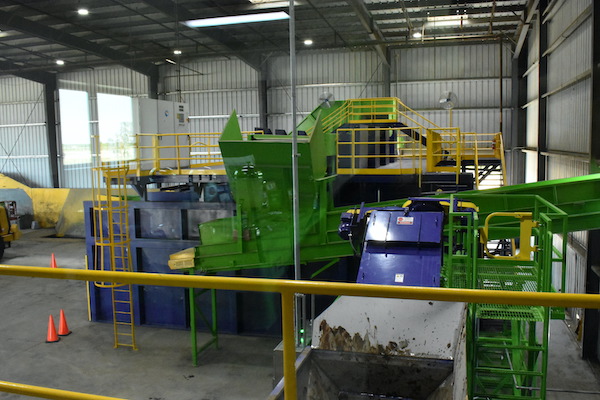
Mid Valley Disposal CEO Joseph Kalpakoff said the new food depackager is the first technology of its kind in the region. Photo by Frank Lopez
Written by Frank Lopez
Mid Valley Disposal held a ribbon cutting at its Kerman compost facility Tuesday morning to celebrate the installation of a “food depackager.”
The food depackager, which removes packaging from disposed food so it can be properly composted, was completed April 3 after nearly a year of construction and installation.
The food depackager cost about $1.6 million.
The installation of the new equipment comes on the heels of Senate Bill 1383, a law that requires Californians to reduce 75% of organic waste from landfills by 2025, including businesses and certain-sized restaurants.
Using a system of screw presses and filters, the new food depackager can process up to 100 tons of packaged food waste per day, annually amounting to tens of thousands of tons of food waste sustainably composted and diverted from landfills.

Mid Valley Disposal CEO Joseph Kalpakoff said the new depackager is the first technology of its kind in the region.
The food waste will come from Mid Valley Disposal’s coverage area — Merced, Fresno, Kings, Madera and Tulare counties.
The company made 45,000 tons of organic compost in 2022.
“It [food] comes from the farm, gets to a restaurant, comes back to our facility, and then it gets back into compost, and back to the farmer,” Kalpakoff said. “Full-circle recycling.”
Four new employees were hired on to operate the machine.
Kalpakoff said the recycling team at Mid Valley Disposal is doing hundreds of site visits a day to restaurants, business owners and residents to educate them on new laws.
Kalpakoff said fines for non-compliance begin in 2024. Right now, the company is in the education period.
SB 1383 requires cities to establish an edible food recovery program and increase their food recovery capacity.

The law is being implemented in two phases. Tier 1 started in January 2022 and applies to supermarkets with revenue of $2 million or greater, 10,000 square-foot or larger grocery stores, food service providers, food distributors and wholesale food vendors.
After Jan. 1, 2024, Tier 2 will begin, which will apply to restaurants with a capacity of 250 seats or more or a square footage of 5,000 feet or more.
It will also apply to hotels with onsite food facilities with 200 rooms or more; health facilities with an onsite food facility with 100 beds or more; large events and venues; state agencies with a cafeteria with a square footage of 5,000 feet or more or 250 seats; and local education agencies with an onsite food facility.
For businesses to comply they must recover edible food, partner with a donation program to give away excess food with written agreements, and track and report their donations and who receives donations.








